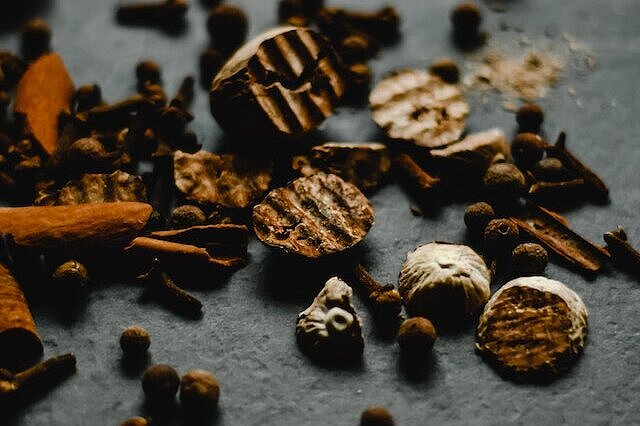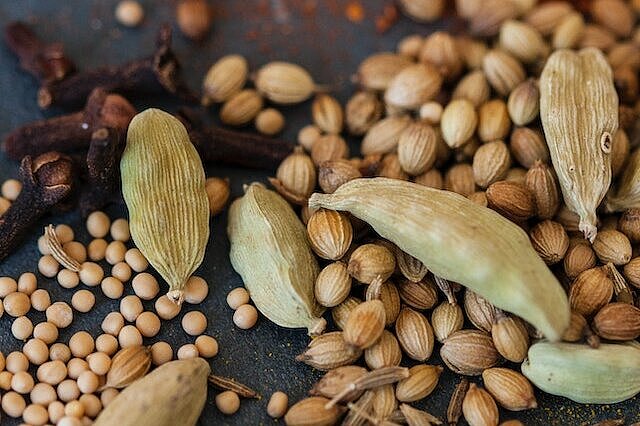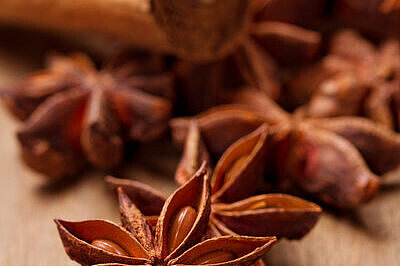Carnations

What are cloves?
Cloves are the dried flower buds of the Syzygium aromaticum tree, which is native to parts of Asia and South America. Known for their intense fragrance and flavor, they are valued in the culinary world as a spice and in traditional medicine for their antiseptic and pain-relieving properties. Clove oil, which is extracted from the buds by steam distillation, is rich in eugenol, an active ingredient known for its antimicrobial and anti-inflammatory properties.
Nutrients and health benefits
Cloves contain important nutrients such as vitamins (especially vitamin C and vitamin K), minerals (such as manganese), antioxidants and fiber. Their health benefits for humans include aiding digestion, relieving toothache and reducing inflammation.
Benefits of cloves for dogs
Natural anti-inflammatory
Eugenol in cloves acts as a natural anti-inflammatory agent. In controlled amounts, it could theoretically help relieve inflammation and pain in dogs, similar to how it does in humans.
Antimicrobial effect
The antimicrobial properties of cloves could potentially help fight certain bacterial infections in dogs. Clove oil is sometimes used in natural dental care products for dogs to promote oral health and combat bad breath.
Disadvantages and risks
Toxicity of eugenol
Although eugenol offers health benefits, it can be toxic to dogs in higher doses. Symptoms of eugenol poisoning include vomiting, diarrhea, excessive salivation, lethargy, and in severe cases, liver failure.
Risk of aspiration
Whole cloves or large pieces can pose a choking risk to dogs or, if aspirated, cause breathing problems. The use of powdered cloves or essential oil also requires caution as these are more concentrated and potentially more dangerous.
Lack of research
There is a distinct lack of specific research on the safety and efficacy of clove and clove oil for dogs. Without solid scientific data, it is difficult to establish safe guidelines for the use of clove in dog care.
While cloves and their main active ingredient, eugenol, offer numerous health benefits for humans, their use in dogs is not without risks. The potential toxicity of eugenol and the risk of physical danger require dog owners to exercise extreme caution. Ultimately, the safety and well-being of your dog should always come first. When looking for natural remedies and supplements, it is crucial to choose proven and safe options to avoid unwanted health risks.
If you notice any signs of hypersensitivity or poisoning in your dog, you should see your vet immediately. We are not a substitute for a vet, but we try to be as accurate as possible. Every dog reacts differently and we recommend you get a second opinion or consult your vet if in doubt.
Stay healthy and take good care of your four-legged friend!😊
Similar to Carnations
Cinnamon is the dried bark of various tree species from the laurel family. There are various types of cinnamon, which differ in taste, color and coumarin content. Coumarin is a natural flavoring...
Nutmeg is the seed of the nutmeg tree, which grows in tropical regions such as Indonesia and India. The seeds are dried and ground or grated into a spice. Nutmeg contains various ingredients that...
Cardamom belongs to the ginger family and originally comes from South Asia. The plant has long, narrow leaves and small, yellow-green flowers. Elongated capsules containing the seeds develop from...
Star anise (Illicium verum) is an evergreen plant that grows in the tropical regions of Asia. The fruits of the plant are star-shaped and each contains one seed. The fruits are dried and used whole...



